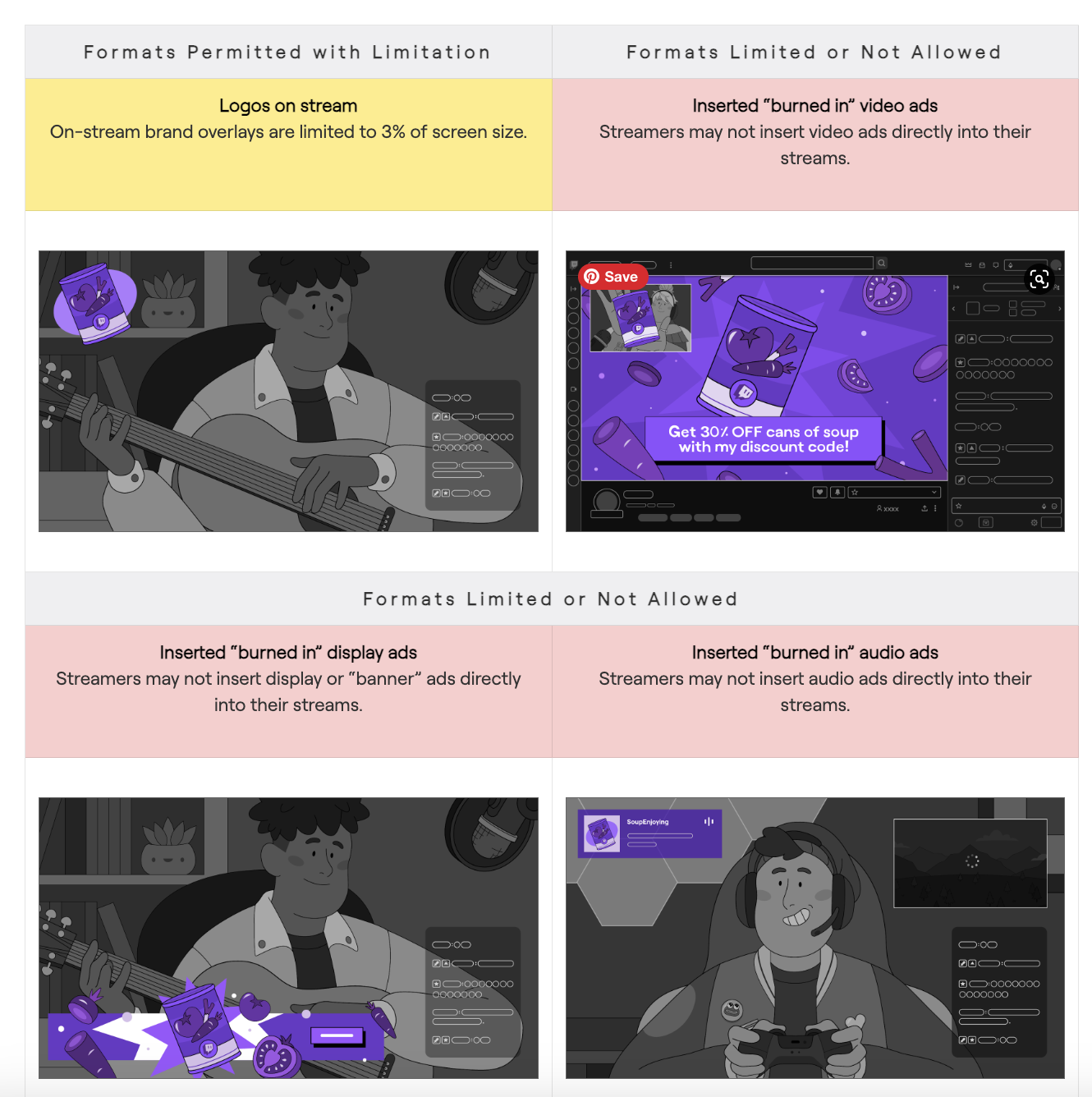One day after Twitch announced sweeping changes to how streamers are allowed to advertise, the company is backing off.
On Tuesday, Twitch announced updates to its branded content guidelines — the set of rules that dictates how streamers can display sponsorships, endorsements and other paid promotions.Twitch noted the growing criticism at the time but it took until Wednesday afternoon for the company to reverse course.
“Yesterday, we released new Branded Content Guidelines that impacted your ability to work with sponsors to increase your income from streaming,” the company wrote. “These guidelines are bad for you and bad for Twitch, and we are removing them immediately.”
The changes would have imposed intense restrictions on the in-channel sponsorships that many Twitch streamers rely on for the lion’s share of their income, disallowing many popular ad formats that streamers commonly embed in livestreams.

To top it off, the massive changes, which would have upended existing sponsorship deals for many top streamers, were set to go into effect in less than a month — on July 1.
The backlash was loud and swift. Big channels and smaller streamers alike quickly slammed Twitch for the abrupt shift in branded content rules, highlighting how the changes would impact their ability to make money on the platform.
Many creators viewed Twitch’s sudden changes to the branded content guidelines as a way for the company, which is owned by Amazon, to further insert itself between streamers and their sponsors. Twitch takes a 50 percent cut of creator earnings through its standard revenue sharing agreement, but isn’t able to get a piece of the lucrative deals that streamers negotiate with sponsors and advertisers. Because the economics of streaming aren’t actually that favorable to creators, most serious streamers rely on ads and sponsors to fill that monetization gap.
Streamers regularly display “burned in” ads — advertising displayed directly onto streams, whether through display banners, video commercials or audio. The changes announced Tuesday would have prohibited all of those ads, with the exception of relatively tiny display ads that take up less than three percent of the screen.
Confusion abounded about that three percent limit, with some streamers pointing out that even Twitch’s “good” example ad took up more screen real estate than would now be allowed.
The branded content rule changes aren’t the only hornet’s nest the livestreaming giant has kicked lately. Last year, Twitch ignited an adjacent firestorm when it announced plans to phase out the 70/30 revenue split that allowed some top streamers to keep more of their earnings. While the Twitch community has long called for the company to move all streamers to that more favorable ratio, the company instead outlined a vision that would bring everyone into a much less lucrative 50/50 split.
Twitch backtracks on branded content changes after streamer backlash by Taylor Hatmaker originally published on TechCrunch
from TechCrunch https://ift.tt/F14T9nj
via IFTTT

No comments:
Post a Comment